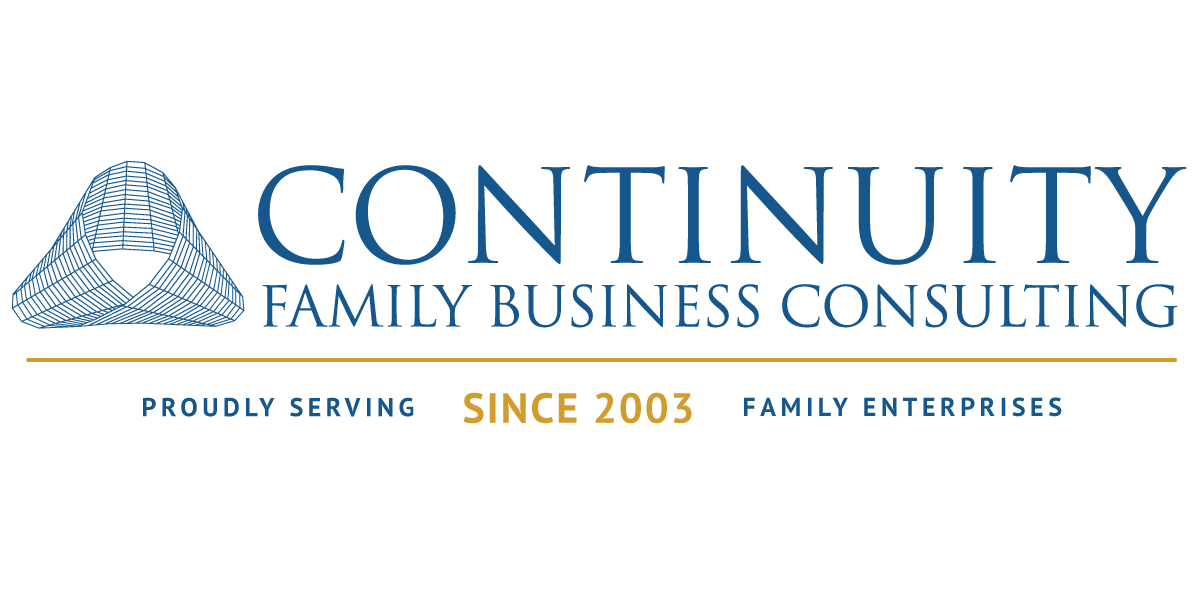Your Future Depends on it.
Conflicts in family business make headlines in newspapers, prompt exposés in business journals, and are the subject of popular books and movies. The bigger the business, the more sensational the story! Poorly managed conflict can be the most devastating threat to family businesses of any size. The fact is that the potential for conflict is woven into the fabric of family enterprise. Yet despite this, most stakeholders and advisors do not truly understand the unique nature of this type of conflict and are unprepared to manage these conflicts when they strike. How family business conflict is managed—or not—can destroy the family business and family unity, or be the key to their success through the generations.
Conflict in Family Business is Unique
When family dynamics combine with management, ownership and economic interests, the resulting mix can prove exponentially more complex. This can be an explosive mix when family members hold very different views about decisions that could impact their career, financial security, standing in their family and community. Unlike for those in non-family businesses, who have the option to simply leave and join another business (or family) in which one’s values and skills might be more appreciated, family members in a family business can feel trapped when conflict occurs – and this can lead to extreme outcomes.
Before stakeholders and advisors can begin to address the conditions that lead to conflict in family enterprise, they must first understand how this type of conflict differs from the typical types of conflicts we face in our lives.
“Conflict” vs. “Dispute”
Most of us conflate “Conflict” with “Dispute,” when they are quite different. Disputes are individual, isolatable issues over which people disagree. They have a beginning, middle and end. They can be resolved through negotiation or, when necessary, force.
Conflicts, on the other hand, are systemic – built into a system. They don’t necessarily have a clear beginning or endpoint. They are part of the landscape. As such, conflicts must be managed as they can never be fully resolved. Family businesses are a minefields of this type of conflict, as a result of:
- Conflicting power structures between family and business
- Issues of fairness that are rooted in emotion rather than merit
- The volatile mix of long-established family relationships and communication styles in the workplace.
While each mine may look like a dispute, the field is systemic conflict.
What makes conflict in family business so extreme, though, is that the issues are so important and personal. They may even feel existential to a stakeholder. Roles in a family business for a family member are unlike those in a non-family business. They speak to a stakeholder’s identity – an identity that may have been formed from childhood. When your identity is challenged – as a competent leader; as deserving of a share of the business, income or wealth; or as having both the knowledge and the right to make an important decision that will have significant impact in the family and the business – you will go to great lengths to protect and defend that identity.
Understanding the nature of conflict in family enterprise, therefore, is essential to effectively manage it.
Managing Conflict in Family Enterprise
Family business books are rife with best practices. Many of these so-called best practices are intended to both manage (or avoid) conflict while also propelling the business to greater success. The problem for many families is that adopting these best practices requires change, and change itself can be fraught. Like going in for surgery, there are risks and unintended consequences. Therefore, the adoption of any best practice needs to be done thoughtfully and with a clear view of how to incorporate the idea while navigating that minefield.
Developing family governance, corporate governance, succession planning, and other transition planning for family enterprise needs to be developed with an understanding of the plan’s impact on family relationships and on each individual stakeholder. Introducing even the best idea can trigger pushback and anger. Bringing all stakeholders along the path of change at the pace they can tolerate is essential if conflict is to be avoided.
But, businesses sometimes can’t wait for change to happen. Sometimes decisions must be made that will cause conflict in the family. Other times, change is forced on the company or the family from events outside their control or perhaps not fully thought through. Unexpected passing of leaders, business disruptions, stock market crashes, family members entering a business, and other transitions can be disruptive and cause conflict. That is why learning how to keep conflict at bay isn’t enough. It is important for families to build resiliency, skills and strategies for managing conflict – because it is inevitable.
The Five Foundational Concepts of Family Business Conflict
We’ve developed a unique approach for managing conflict in enterprising families, The Conflict Equation, outlined in our book, Deconstructing Conflict: Understanding Family Business, Wealth, and Power. The Conflict Equation is the synthesis of our experience working with families mired in some of the most extreme conflicts. This approach takes into account these five foundational concepts of family business conflict:
- The potential for conflict is built into the structure of family enterprises and, unlike disputes—which can be resolved—conflict can only be managed.
- How conflict is managed is central to the success or failure of the family business system.
- Family business conflicts strike at the heart of stakeholder identities and this is the reason why these conflicts can be so extreme.
- Family business conflicts exist among people whose continuing relationships are important, and these continuing relationships must be considered at every stage of a conflict management effort.
- These conflicts must be managed integrating both the substantive or economic interests as well as the personal and relationship factors simultaneously.
The Conflict Equation was originally developed as a framework for our own family business consulting work with clients to ensure we thoroughly understood what clients needed to move forward — typically, through difficult and challenging conflict — and so were able to develop comprehensive, reliable, and effective solutions. We developed the method for the consultant’s use, not for families.
But as we applied this method with scores of clients, we found our client families gained enormous value from learning the methods themselves and were able to apply these concepts for the long term.
That said, learning how to deconstruct conflict can be exceedingly helpful, but there are limits to what a family member or other stakeholder in the system can accomplish as conflict managers within their own conflict situation. Having a stake in the outcome makes objectivity difficult, so incorporating a neutral professional can add greatly to the success of the process.
Protect and Grow Your Family Business from Conflict
Learning to manage family business conflict in a training or understanding The Conflict Equation methodology we describe in Deconstructing Conflict, will help you — the stakeholder or advisor in a family enterprise — deconstruct conflict into its component parts, understand what triggers active conflict, and learn how to help all stakeholders manage these conflicts. In doing so, you will be armed with the most effective tool for achieving generational success in your, or your client’s, family enterprise. Whether or not you work with advisors, establishing this “shared language” about managing conflict will contribute to generational success in your family enterprise.
It is also important to recognize that conflict is an indicator that growth and change are needed. Managing conflict poorly means that opportunities for positive change may be delayed—or worse—may be squandered. Managing conflict well helps families lean into change, and this is necessary to maintain a competitive edge.
Want to take a deeper dive? Watch our webinar on managing family business conflict.
Learn more about how we prepare families to manage differences and thrive for generations, including our conflict management training for enterprising families.
About Us
Continuity Family Business Consulting is a leading advisory firm for enterprising families. Using a full suite of service capabilities, we help families prevent and manage the single greatest threat to family and business continuity: conflict. It is through this lens that we advise our clients and build customized strategies for succession planning, corporate governance, family governance, and more. We help families improve decision making, maximize potential and achieve continuity. To inquire, visit https://continuityfbc.com/contact-us or call (617) 500-3110.


